For Years I Relied on the Pill—Here's What Happened When I Quit
The year I went off birth control, I had great sex, cried a lot, got angry, and split up with two different guys. Coincidence?
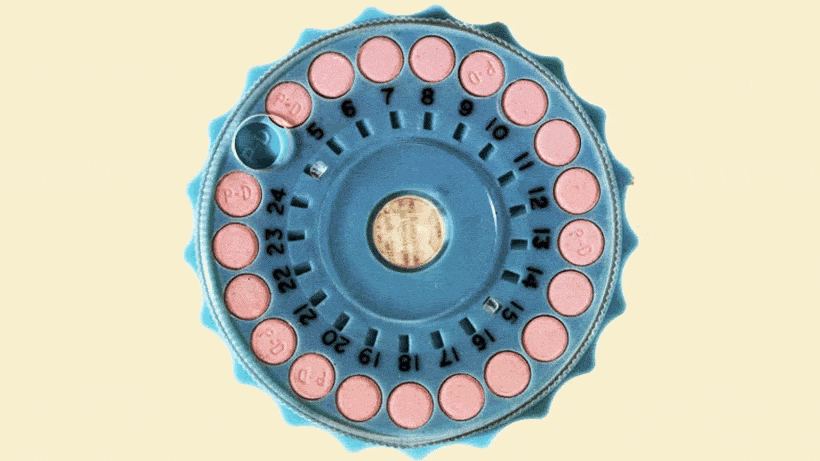

The first time I hit on a stranger, I was 24. I was wearing a wool blazer and new Nikes, and I had just broken up with my boyfriend Josh*—and then gotten back together with him on the condition that he start acting like an entirely different person and that I be allowed to go on vacation with him. In other words, I wasn't exactly in a position to pick up strangers. Yet there I was, electrically giddy, exchanging information with a guy on a subway platform because I happened to understand a dumb reference printed on his T-shirt. And there was another factor: I had recently stopped taking hormonal birth control. In the throes of my first or second "natural" cycle since I was 16, I couldn't tell where my hormones ended and I began.
In a short-story's worth of text messages with a friend, I weighed the pros and cons of contacting Subway Guy. Was it worth sacrificing my relationship to possibly have sex with him, or was I ovulating and horny? Were Josh and I incompatible—or was I overly sensitive to our differences because of my newly intense PMS? Was I unhappy because of my relationship, or because I had gained four pounds that week?
"I couldn't tell where my hormones ended and I began."
A few days later, I got my period, figured I'd been acting out because of PMS, and held off on breaking up with Josh. At the time, I told friends that going off birth control was making me crazy. Now, three years later, I realize it probably had been the time to end things. But in the midst of my delayed introduction to female chemical fluctuations, I doubted my decisions, my motivations, even my reliability as the narrator of my own life.
Before I went off birth control, I hadn't given much thought to hormones. As a preteen, I had my sad phases, sure, especially right before my first period, at age 12. And by the time I started taking the Pill when I was 16, the adolescent undulations of my mood had settled into imperceptible slopes. Once I got serious with Josh at 22, I joined a handful of friends in switching from the Pill to the more convenient NuvaRing. The vaginal insert distributes a low dose of birth-controlling hormones continuously for three weeks, you take it out to induce your period, and then you insert a fresh one a week later.
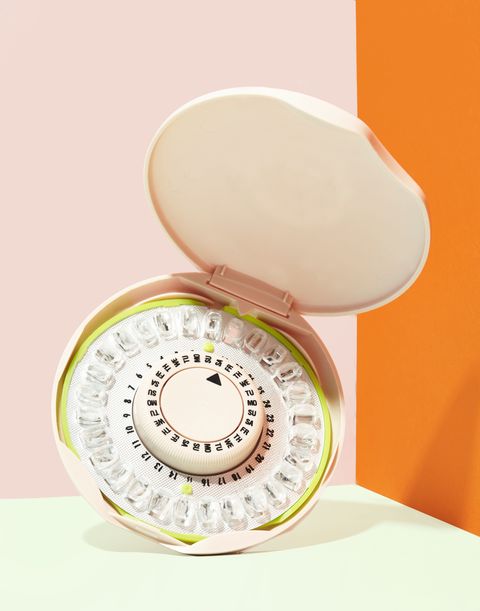
But after about a year, I began dawdling when it came time for a new ring. The reason, I realized, was that for the seven days I was not on hormones, I liked sex more. Orgasms were suddenly dialed up, like the volume on a commercial break.
"Maybe the risk of getting pregnant turns you on," Josh suggested. I was pretty sure I didn't have any pregnancy fantasies. And it turns out, I wasn't the only one who noticed a decreased libido while on birth control. As Melissa Ferrara, a nurse practitioner at Maze Women's Sexual Health in New York City, explains, hormonal birth control may dampen libido for some women by suppressing the monthly surge and depletion of testosterone, the naturally occurring hormone linked with a woman's sex drive. In fact, a 2010 study in the Journal of Sexual Medicine found that women on hormonal forms of birth control may have lower levels of arousal and desire.
But once I was off birth control completely, the changes were more than sexual. I felt smarter—and I felt meaner. Except when I was sad, when I felt like I had been knocked down by a big wave and left for dead on a foggy beach. Twelve years after my first period, I worried I was conforming to the stereotype of the hysterical woman whose moods were controlled by her hormones—a feeling Josh only reinforced.
Stay In The Know
Get exclusive access to fashion and beauty trends, hot-off-the-press celebrity news, and more.
"for the seven days I was not on hormones, I liked sex more. Orgasms were suddenly dialed up, like the volume on a commercial break."
"You've become an angry person," he told me one night, as he ordered takeout and I complained about my day at work. I was stunned. I was angry in that moment, but it never occurred to me that a single emotion could swallow me whole in the eyes of someone else. So I stopped talking to him about my frustrations at work and other things that upset me, and leaned on girlfriends instead. My hormones became my hall pass. A period was always a few days (OK, weeks) away, to retroactively explain any unhappiness or anger. That wasn't me who snapped at her boyfriend and cried after he fell asleep. It was PMS! Then again, maybe it wasn't: "Didn't Josh deserve to get snapped at," a friend pointed out, "because he convinced you to cancel your plans again?"
Online, I read a study from researchers at the University College London that found women had more intrusive thoughts about stressful events on days 16 to 20 of their menstrual cycle. Another study reported that menstruating women have trouble concentrating. I even read that most female murderers had PMS at the time they committed the crime. I didn't really believe that—except when I was PMSing, when I totally did.
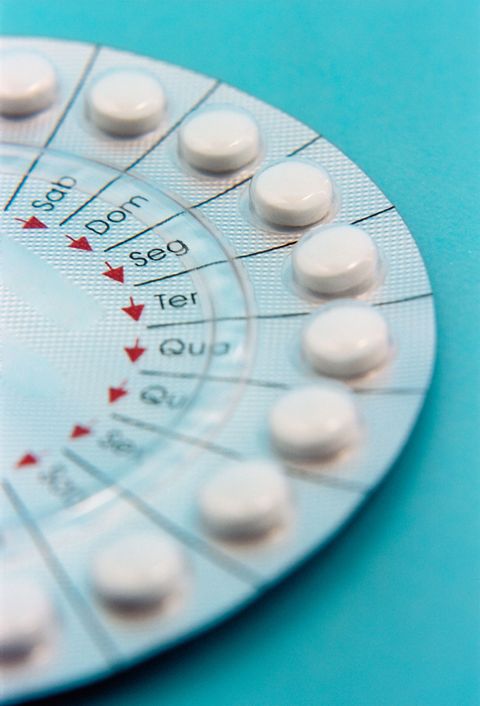
Meanwhile, things with Josh deteriorated. When I tried to recap our frequent, increasingly abstract fights for my friends, I couldn't tell if someone was actually at fault or whether we were simply growing apart. Intellectually, I knew it was normal to disagree with my boyfriend and for the big disagreements to inspire doubt about our long-term viability as a couple, but in my hormonal confusion, I ascribed all our incompatibilities to my newfound emotional volatility. Eventually, the sex I'd gone off birth control for became an afterthought, and nine months after my last NuvaRing, I could clearly see all the reasons why I had been looking for someone else on a subway platform.
After we broke up, I was happier, so I knew I had made the right decision, regardless of the role hormones played. I also decided to stay off birth control, imagining that the risk of pregnancy would force me to use condoms with the parade of strangers I would inevitably sleep with, and spare me a slew of STDs.
In reality, I quickly began dating another guy and downloaded a family-planning app to avoid pregnancy and interpret my moods. Instead of controlling my hormones, in other words, I planned to listen to them. In theory, it seemed radical and empowering in an Our Bodies, Ourselves kind of way. In practice, it was a disaster. Monitoring my blood, cervical mucus, and basal body tempera- ture made me feel like having a body was my only thing, like I was breeding stock. And logging my emotional state in the app with little frowny faces was infantilizing.
I had turned myself into some kind of hack hormone astrologist, seeking a chemical explanation for every mood or desire instead of simply giving myself permission to feel things. Eventually I realized that, like astrology, blaming your behavior on hormones is sketchy work. If I was upset enough to cry about something, regardless of the cause, I wanted to be with a man who would comfort me—not someone like the new guy, who would refuse to take my calls until my tears stopped.
"I've learned that if something makes me unhappy over and over again, it's not hormones; it's probably something worth getting upset about."
Now, three years, three boyfriends, and three jobs since I went off the NuvaRing, I've learned that if something makes me unhappy over and over again, it's not hormones; it's probably something worth getting upset about. I wish I could say this self-assurance is the result of a long stretch of contemplative solitude or a new, emotionally intelligent boyfriend who fixed everything. Really, I think it's because I no longer have a way to track my cycle.
Like many women with the Mirena IUD, my current form of birth control, I no longer get my period. As Ferrara explains it, the uterine implant releases a low womb-targeted dose of a progestin hormone: "For most women, it doesn't suppress ovulation like birth-control pills, but it can thin the lining of the uterus to the point that you don't bleed." Meaning, I still experi- ence the same hormonal fluctuations I did when I was off birth control completely, but I don't have a monthly marker to remind me. I might be pissed at a guy because I'm premenstrual, or it could be stress. Or maybe the jerk deserves it. What's changed is this: I have the freedom to interpret my moods without hormonal caveats, and as a result, I feel entitled to my emotions. Has this self-awareness made me better at picking boyfriends? Hard to say. Ask me when I hit menopause.
*name has been changed
This article appears in the August issue of Marie Claire, on newsstands July 19.
Kat Stoeffel is the features director for ELLE.com
-
 Miley Cyrus Is in Her Normal-Girl Fashion Era
Miley Cyrus Is in Her Normal-Girl Fashion EraNothing could have prepared me for her new look.
By Kelsey Stiegman
-
 The Trendy Retro Sneakers I’m Wearing on Repeat
The Trendy Retro Sneakers I’m Wearing on RepeatFootwear designers are on a vintage kick, and I'm all for it.
By Emma Childs
-
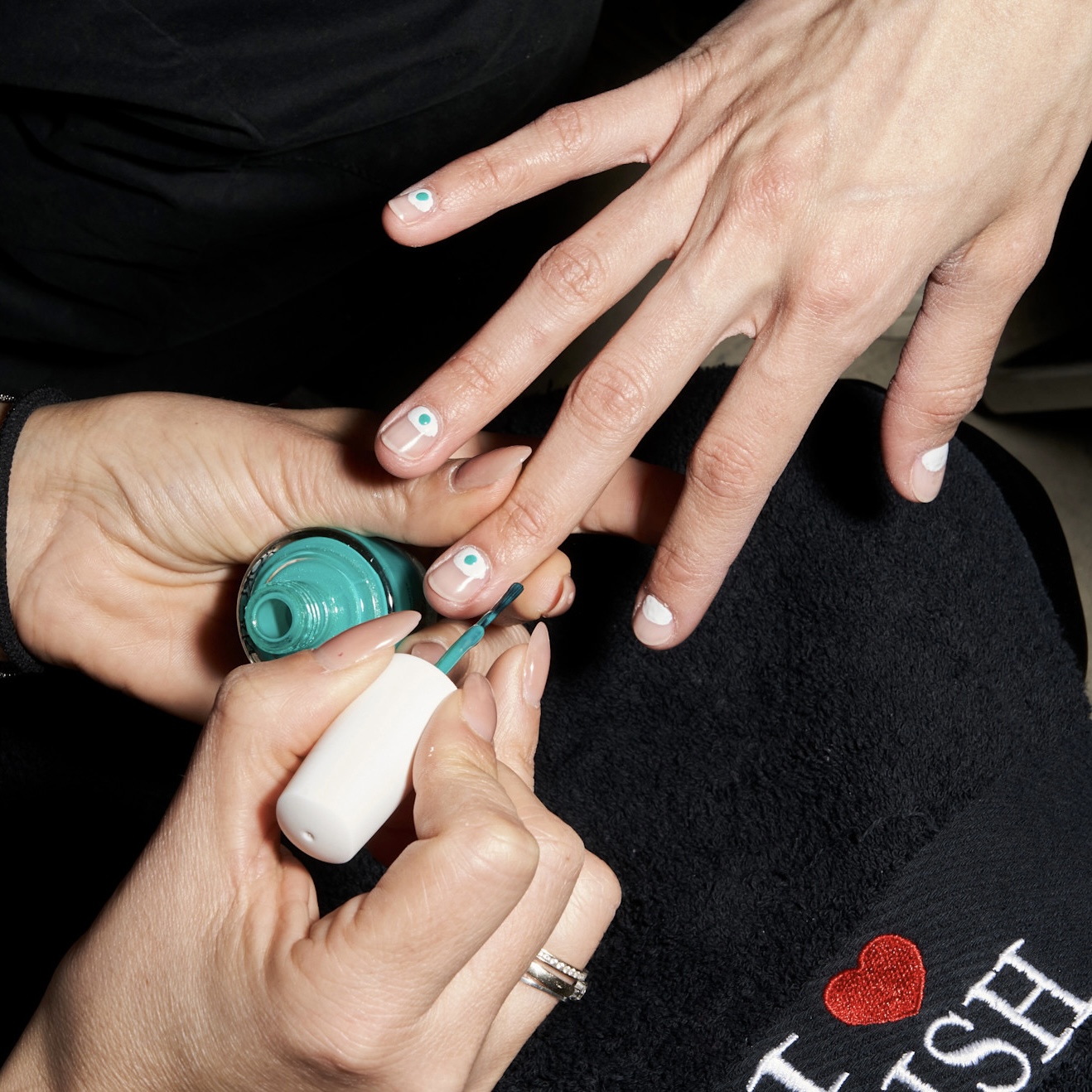 As a Chronic Nail Biter, I Swear by These Chic Mani Designs to Look Pulled-Together
As a Chronic Nail Biter, I Swear by These Chic Mani Designs to Look Pulled-Together35 short and sweet styles.
By Emma Aerin Becker
-
Being Single May Make You Happier Than Ever
Our resident psychiatrist explains how being your own one-and-only can really pay off.
By Samantha Boardman
-
 The Right Amount of Time to Spend With a Partner
The Right Amount of Time to Spend With a PartnerOur resident psychiatrist Dr. Samantha Boardman says alone time can actually make together time better.
By Samantha Boardman
-
 What to Do If You're an Introvert and He's Not
What to Do If You're an Introvert and He's NotOur resident psychiatrist Samantha Boardman on how couples with different personality types can find balance.
By Samantha Boardman
-
Marriage and #MeToo
Behind the millions-loud movement, there’s a quiet fringe of women not comfortable posting the hashtag—because to out their perpetrator would be to out their husband.
By Andrea Stanley
-
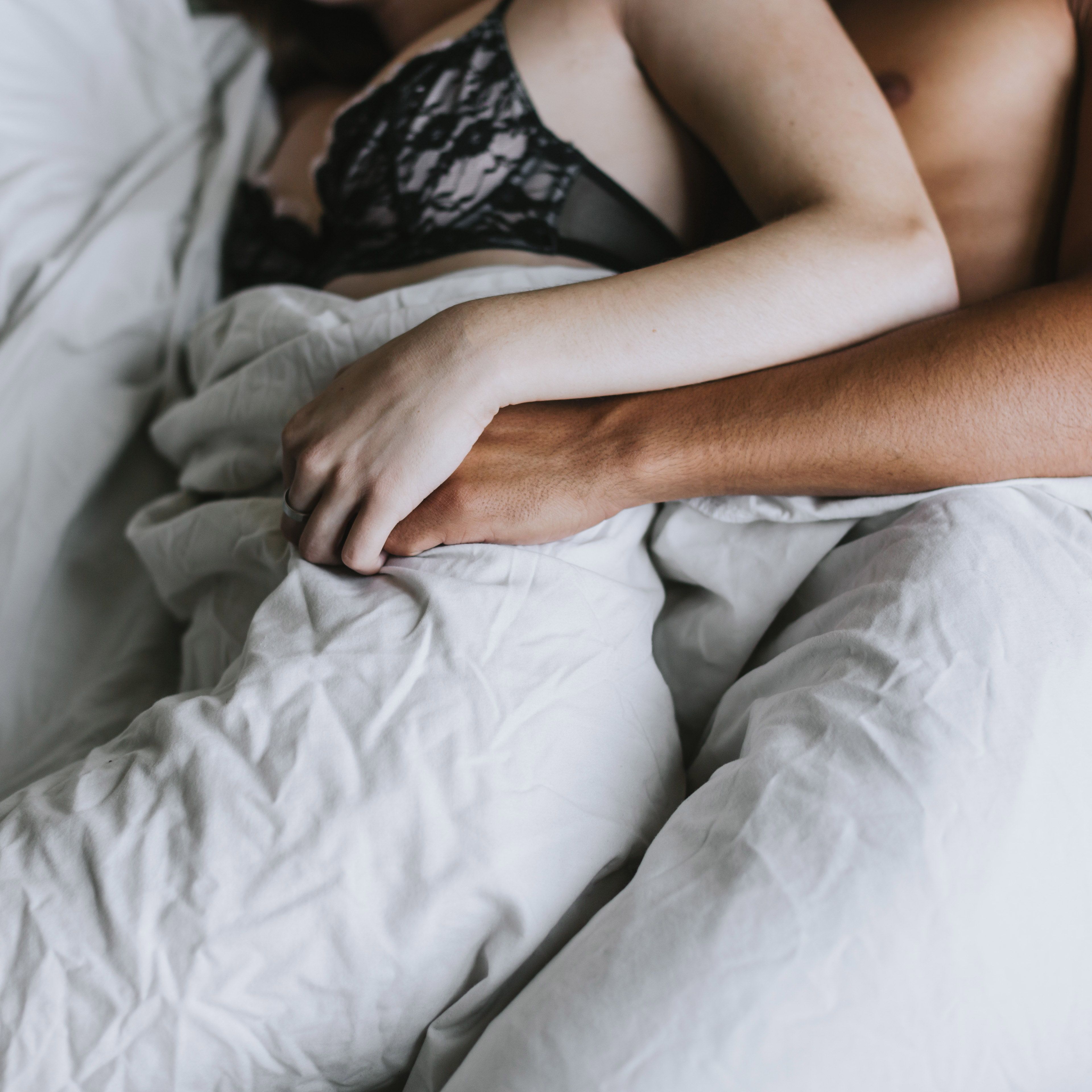 Why Can't I Have an Orgasm?
Why Can't I Have an Orgasm?Features Women experience sexual performance anxiety too—here's why.
By Gigi Engle
-
I Cheated on My Boyfriend with My Rapist
By seducing my assaulter, I was reclaiming the control I’d lost over my body and identity.
By Lana Hoch
-
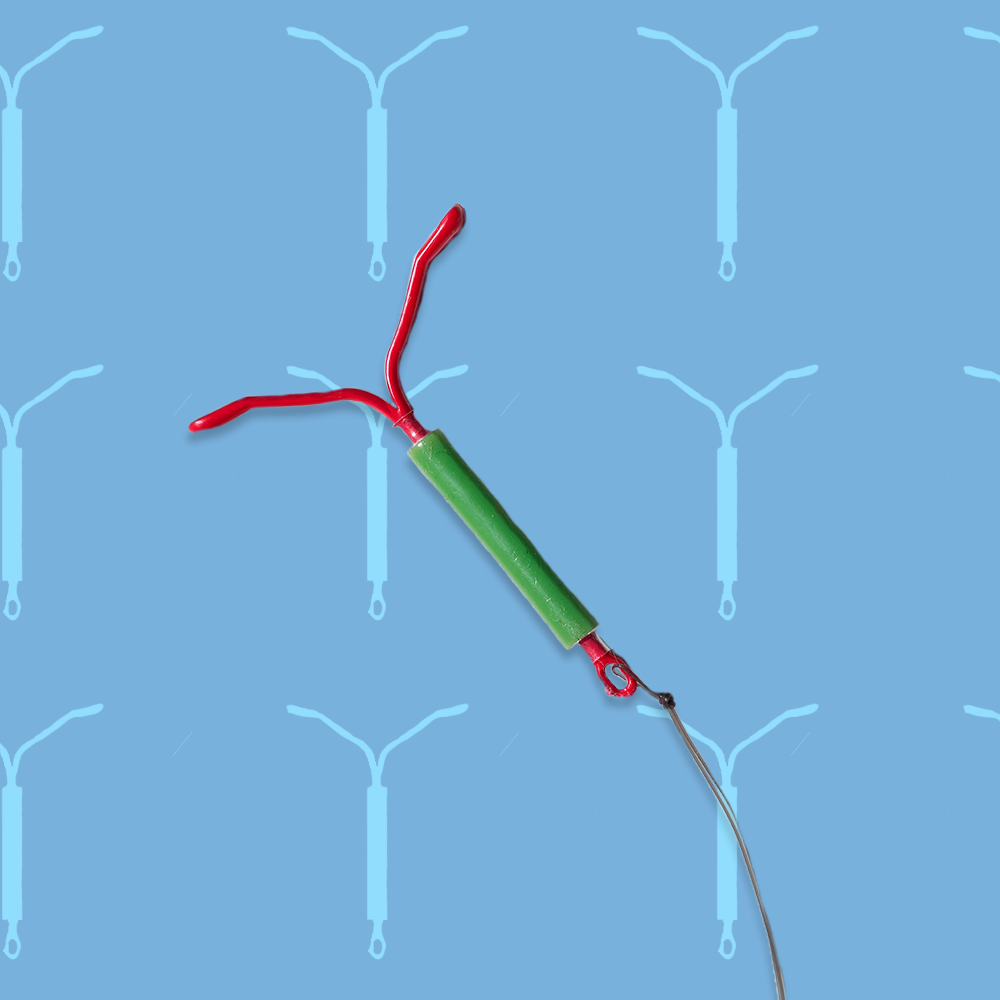 If You’re Freaking Out About Getting an IUD, Here’s What to Know About the Insertion Process
If You’re Freaking Out About Getting an IUD, Here’s What to Know About the Insertion ProcessYour most pressing questions, answered.
By Lori Keong
-
Actually, That's Sexual Assault
Taylor Swift's groping trial helped me see my "weird night" for the nightmare it really was.
By Chloe Metzger